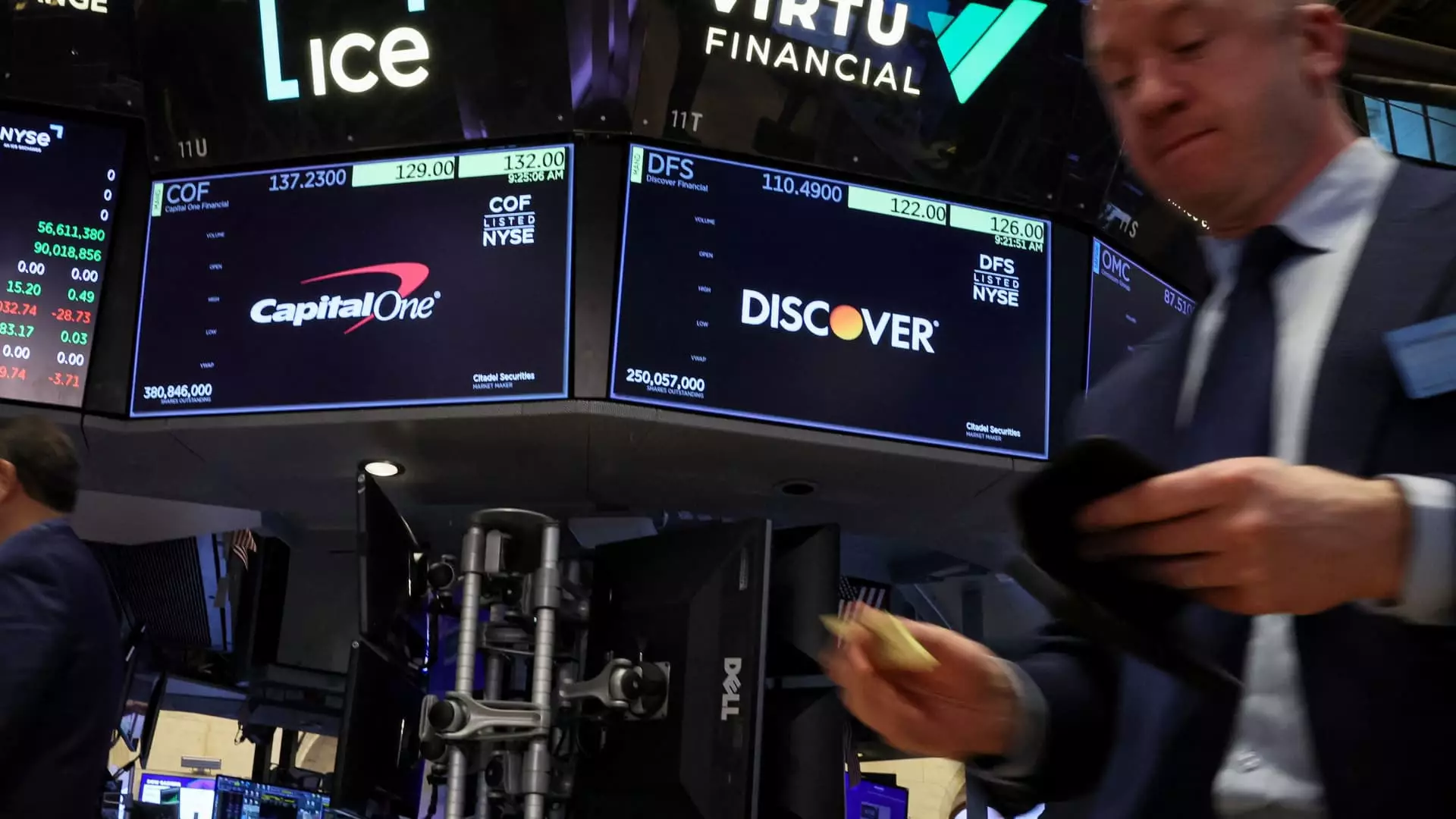Recent discussions surrounding Capital One’s potential acquisition of Discover Financial Services reveal a landscape teeming with both opportunity and significant challenges. Wall Street analysts at BTIG have painted a bullish picture, extrapolating that if the merger proceeds, Capital One’s shares could soar to an astonishing $427—an eye-watering 137% leap from current valuations. But while the allure of such gains is undoubtedly captivating, the looming specter of regulatory scrutiny casts a long shadow over the projections. A 137% uptick sounds titillating; however, it’s essential to critically dissect the factors surrounding such optimistic forecasts, particularly in an environment where regulatory bodies are increasingly vigilant against perceived monopolistic consolidations.
Regulatory Hurdles and Market Concerns
The concerns from the Justice Department regarding concentration in the subprime credit card market are valid and merit serious consideration. In a financial ecosystem that is still grappling with the fallout from previous crises, the last thing regulatory bodies want is to allow further consolidation that could jeopardize consumer choices and protections. While Capital One’s spokesperson insists that the deal is well-positioned for approval, one cannot ignore the massive implications if the merger does not go through. Has BTIG factored in the repercussions of a failed acquisition into their projections? The nature of market sentiment is fickle; should the merger collapse, analysts may quickly find their guidance scrutinized.
Moreover, Capital One’s market strategies, even amidst this merger, must be thoroughly evaluated. Convincing regulators of a seamless integration that upholds competitive fairness requires more than just assurances. Capital One’s tightening of underwriting standards may have made them more resilient against a weakening consumer base, but the real question is whether such metrics will stand robustly against the scrutiny from regulators.
Capital One as a Standalone Entity
Interestingly, BTIG describes a scenario where, even if the merger were to fall through, Capital One’s standalone value is pegged at $208—a solid 15% upside from current prices. This speaks volumes about the intrinsic strength of Capital One as an independent entity; however, it begs the question: how much of this assessment is based on ideal scenarios rather than realistic market behavior? During tumultuous economic times, no financial institution can claim immunity from market volatility, and Capital One’s past record indicates that it too can be vulnerable to market shifts.
While the analysts tout Capital One’s excess capital as an enabler for significant stock repurchases, it remains to be seen if that will translate to long-term operational efficiency or simply serve as a temporary fix to appease investors. The narrative spins an attractively favorable outlook, but the underlying questions around consumer health and overall economic conditions must necessitate caution.
Antitrust Apprehensions in an Evolving Landscape
The merger’s entanglement with antitrust issues underscores the growing importance of scrutinizing corporate consolidation in the financial sector. Such a substantial merger raises profound questions about market dominance—especially when Capital One and Discover would effectively occupy a more significant share of an already niche credit market. If regulators push back against this merger, it may not just involve Capital One and Discover, but could set a precedent affecting future mergers across the sector.
What will it take for Capital One to alleviate these antitrust concerns? History shows that corporate restructuring often involves profound compromises—something leaders like CEO Richard Fairbank must navigate intricately. As it stands, discussions about potential sell-offs in sectors deemed too dominant highlight the precarious balance between growth and regulation that financial firms must uphold.
Social Responsibility and Ethical Considerations
Delving deeper, one cannot discuss Capital One without addressing the ethical dimension of financial services. Recent lawsuits, such as the one filed against the organization by the Trump family business, spotlight the complicated nature of consumer relations and brand reputation. While Capital One asserts that its account closures in the wake of the January 6 attacks were not politically driven, the perception and story surrounding such actions can resonate profoundly with consumers. Trust is a currency in the financial world, and losing it can have far-reaching implications that no merger or revenue projection can mend.
Capital One’s maneuvering through this complex web of opportunities and challenges reveals the multifaceted nature of modern-day financial operations. The excitement surrounding potential stock gains must be balanced with keen awareness of both market realities and social obligations. Thus, while a promising future lies ahead for Capital One, the path is fraught with numerous pitfalls that warrant attention. The compelling figures presented by analysts must be interpreted with caution, reflecting both the ambitions and the inherent risks that characterize such transformative endeavors.

Leave a Reply